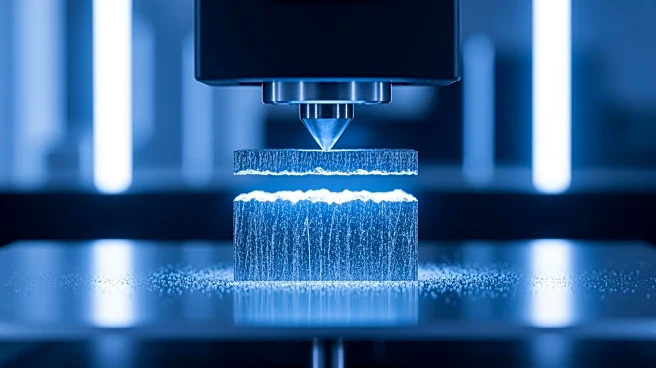What's Happening?
A recent study has demonstrated that higher concentrations of specialized pro-resolving mediators (SPMs), specifically MaR1 and RvD1, in platelet-rich plasma (PRP) are associated with reduced inflammation and cartilage breakdown in human chondrocyte cultures. These findings suggest that SPMs could play a pivotal role in enhancing the therapeutic effects of PRP, which is used to treat conditions like osteoarthritis and rheumatoid arthritis. The study highlights the potential of optimizing PRP formulations to improve patient outcomes.
Why It's Important?
The discovery of SPMs' role in PRP therapy could revolutionize treatment approaches for inflammatory and degenerative joint diseases. By enhancing the anti-inflammatory properties of PRP, healthcare providers may offer more effective treatments, potentially reducing the need for invasive procedures and long-term medication use. This advancement could lead to improved quality of life for patients suffering from chronic joint conditions and stimulate further research into SPMs' applications in other medical fields.
What's Next?
Future research will likely focus on optimizing PRP formulations to consistently achieve high SPM concentrations, possibly through dietary supplementation or other interventions. Clinical trials may be conducted to validate these findings in vivo, assessing the long-term benefits and safety of SPM-enhanced PRP therapy. Additionally, the medical community may explore the use of SPMs in other therapeutic contexts, broadening their application beyond joint health.











